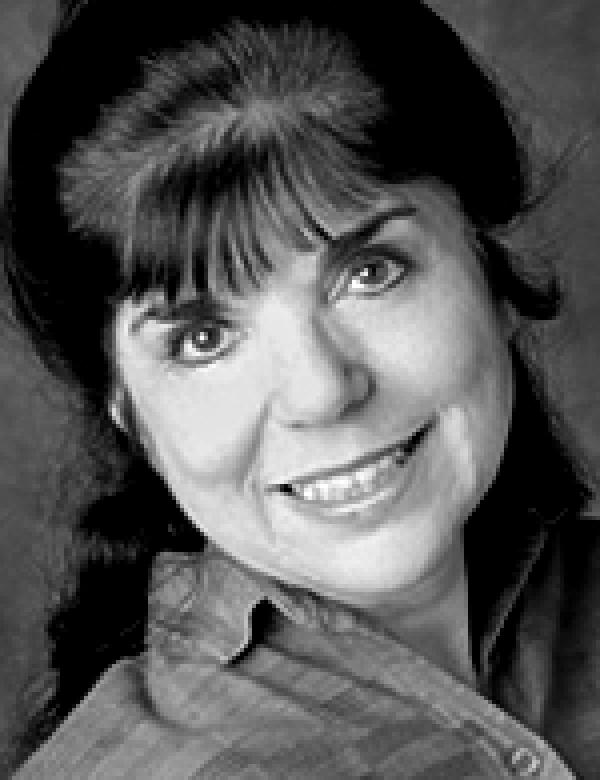Bio
Born in New York City, Eve Queler was drawn to music from her earliest years. She began piano lessons at age five and then attended the Fiorello H. LaGuardia High School of Music and Art in New York City. In 1956 she entered the Mannes College of Music and began studying conducting under the tutelage of Carl Bamberger. A Martha Baird Rockefeller Fund grant enabled her to pursue further studies in conducting with Joseph Rosenstock and accompaniment with Paul Ulanowsky and Paul Berl. Queler went on to study conducting with Walter Susskind and Leonard Slatkin in St. Louis, and with Igor Markevitch and Herbert Blomstedt in Europe.
Early in her career, she served as rehearsal accompanist and coach with the Metropolitan Opera Studio. Between 1965–1970, she was an assistant conductor to 2009 NEA Opera Honoree Julius Rudel at the New York City Opera, where she played for rehearsals and auditions, coached singers, and occasionally conducted at rehearsals.
In 1968 she created the New York Opera Workshop (which would later become the Opera Orchestra of New York) to present concerts by established opera performers and emerging talents. As music director, Queler has shepherded the institution since its establishment, and has conducted more than 100 operas in concert at Carnegie Hall. While opera audiences are engaged through the visual and dramatic elements of the art form, Queler has captivated audiences through unstaged concert versions, where the focus is entirely on what is heard.
Queler is a faithful champion of opera who has tirelessly dedicated herself to researching and unveiling the unknown riches of the genre. She has presented long-neglected and little-known operas, many of which had rarely or never been heard in the United States. Her pioneering efforts have led national opera companies to add to their permanent repertoires works that received their first major modern performance at OONY, such as Verdi's I Lombardi, Donizetti's La Favorita, and Zandonai's Francesca da Rimini.
Queler has championed many neglected Russian and Czech operas that were staples in Central Europe but virtually unknown in the United States. She was the first conductor in this country to perform Mussorgsky's unfinished Khovanshchina with orchestration by Shostakovitch. She was first to bring to American stages Czech-language performances of Janáček's Kátya Kabanová (1979) and Jenůfa (1988), and Dvořák's Rusalka (1987). Her performances of Tchaikovsky's The Maid of Orleans, featuring Dolora Zajick and Jorma Hynninen, marked the American premiere of the Russian language version of the opera.
Well-regarded for her ability to spot bright new talent, Queler has provided critical early exposure to many opera luminaries such as Renée Fleming, Dmitri Hvorostovsky, James Morris, Lauren Flanigan, Stephanie Blythe, and Deborah Voigt. She provided a debut venue for dozens of artists, including José Carreras, Aprile Millo, Ghena Dimitrova, Richard Leech, and Jennifer Larmore, who went on to enjoy major American careers.
Not only did Queler attract emerging vocal talent but also that of established performers in search of uncommon vehicles in which to display their voices, such as Plácido Domingo, Nicolai Gedda, Montserrat Caballé, and Alfredo Kraus. She presented singers in works they sought to perform before the major opera houses would stage them, such as OONY's widely hailed 1974 presentation of Massenet's Le Cid with Plácido Domingo, and Donizetti's Parisina d'Este with Montserrat Caballé in that same year.
Queler has been named a Chevalier de l'Ordre des Arts et des Lettres (2002), one of the highest awards presented by the French government, for her commitment to French operas. She has also received the Sanford Medal, Yale University's highest musical honor. She was awarded the Touchstone Award from Women in Music in recognition of her visionary spirit as one of the "Women Who Make a Difference."
It is through Queler's dedication that previously abandoned works have become part of the standard repertory in American opera houses. Through her curatorial role each season, Queler treats her audiences with the same care and commitment as she does her singers.

